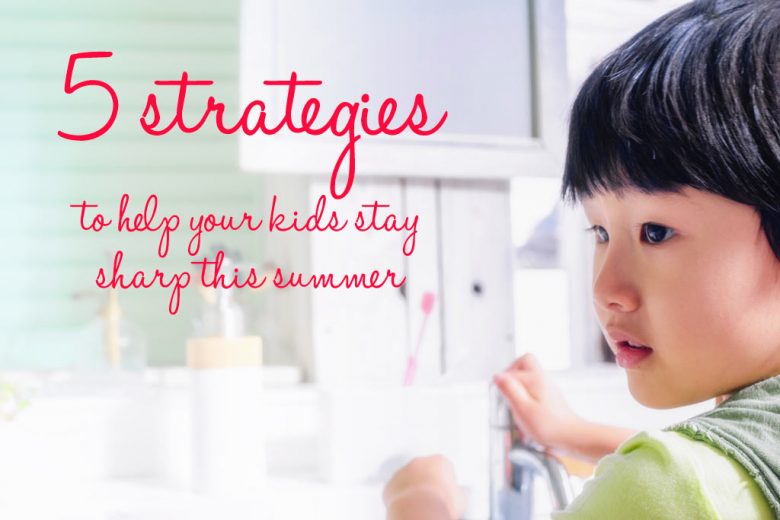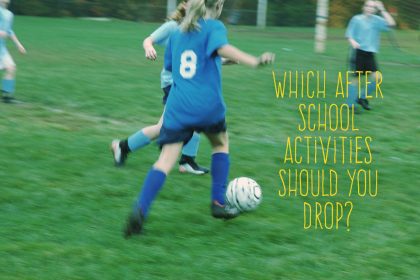How do I keep my kids off the ‘summer slide’?
Your question
The summer holidays are fast-approaching and I don’t know what to do with my children! What activities can I steer them towards that they’ll enjoy, but that will also help keep their minds sharp, so I can steal some guilt-free hours for my own work?
Our answer
What you’re referring to actually has a name – the ‘Summer Slide’. It’s a term that is used to describe the loss of learning over the six week school break.
The effect is cumilative and builds up each year, so teachers and other experts are worried that it can have a negative overall impact on a child’s learning.The good news is that it does not have to be that way. Keeping children off the Summer Slide is not rocket science. All it takes is a few simple but highly effective activities.
Following the end of a demanding school year, children need a break and will probably resist any attempt to be engaged in traditional academic work. Fortunately, learning for academic success does not neccessarily require textbooks and vigorous study.
So what’s the alternative? How do we make sure that our children are provided with opportunities to boost their brain power, while at the same time take a hard-earned break from conventional academic work?
Far from being a time to let learning slip, summer may actually be the perfect time to nurture your child’s core learning skills and lay the foundation for them to become successful learners – without them realising!
Five strategies to help your kids stay sharp this summer
Here are five surprisingly simple but highly effective strategies to reinforce our children’s learning, while at the same time providing them with fun and engaging activities.
1) Encourage them to read
Children are born with an almost innate love for books. From an early age they are drawn into picture books and love stories. Sadly, as they grow up their interest in books is fading.
However, children’s reading habits is strongly linked to success in school. Children who read do not only do really well in literacy, but have higher science and mathematics performance as well.
The most effective way to encourage your child to love reading is by reading to them. Being a reader yourself will also encourage them to become a book lovers. So this Summer become their reading partner. Why not choose a book together or ask them to suggest a book for both of you to read? You can create your very own family book club. Talk about the characters and their choices. What would they have done differently? Is there any moral in the stories you are reading?
2) Encourage them to participate in a sports club
An increasing body of research shows that sports boost academic performance. Children who participate in sports do better at school than children who do not take physical exercise. But it is not only sports that are linked to a boost in performance. Any vigorous physical activity is also linked to better learning particularly in maths and literacy.
The reasons are quite straightforward. Activity improves blood flow to the brain, which in turn provides more oxygen to the cells and ‘grows’ the brain.
Exercise also releases hormones that improve mood and lower anxiety enabling efficient learning. In addition, organised sports offer the added benefit of teaching children that it is only practice, dedication and working towards achieving our goals that can improve our skills and makes us better. And this is simply the attitude that makes a great learner.
3) Play board games with them
Board games not only bring the family together, but stimulate brains cells as well. Childhood favourites such as Mastermind, Monopoly, Battleship or Chess can boost critical and strategic thinking and lay the foundation for developing mathematical thinking.
Children enjoy engaging with their parents, so this summer make it a priority to spend some family time playing games.
4) Play video games
Did you know that video games are good for your brain? They may have attracted bad publicity for decades, but science has now shown that video games make us smarter. They encourage children to seek creative solutions and then apply them in different contexts. They also help with strategic planning and being able to concentrate and comprehend instructions.
Video games may be an exciting way to engage children with a learning environment, but please make sure that you limit screen time and that your child has access to age-appropriate material. Check the Pan European Games Information website for more information.
5) Solve puzzles
Puzzles are a great way to practise fundamental skills that enable children become good learners. They are extremely good at teaching them to concentrate, think and reason. Not to mention that they are fun and can captivate children.
So, why not split the family into two teams and try solving one or two puzzles a week? There are plenty of books and online resources for you to explore and choose age-appropriate puzzles. Also Sudoku, crosswords, wordsearch and similar games can rewire the brain enabling learning.
Another great activity that can boost the learning process is jigsaw puzzles, as they offer a fun and engaging way for children to exercise their cognitive abilities during the summer months. Solving puzzles requires them to use spatial reasoning, preventing the ‘summer slide’ and improving their academic performance.
Jigsaw puzzles by Buffalo Games is a go-to place for themes like photography, pop culture, animals, and art, while Serious Puzzles offers double-sided and magnetic puzzles besides the regular ones in various difficulty levels and piece counts.
Keep your kids happy and bright (and buy time for yourself)
By spending some quality time with your children, and introducing them to activities that you know will help keep their minds sharp and eager, you can buy some precious time for yourself in the summer holidays, to pursue your own work or business projects, and ensure that you’re all ready to hit the ground running in September.
Answered by Dr Anastasia Pappa. Anastasia helps parents support their child’s learning at home. She runs evidence-based workshops and 1-to-1 coaching sessions. You can find out more on her website.










